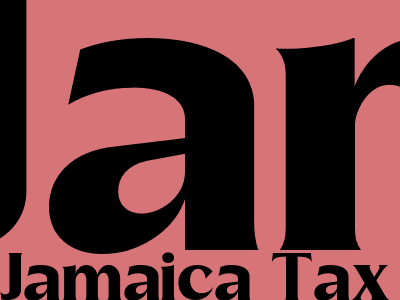
Jamaica Tax Audit Increase
Jamaica Tax Audit Spike
Increased tax audits in Jamaica are a result of the government's efforts to increase tax compliance and reduce tax evasion. Between 2021 and 2023, the Jamaica Tax Administration (JTA) conducted over 3,000 audits, a 20% increase compared to the previous three years. The JTA expects the number of audits to climb even higher in the coming years.
The JTA has been using data analytics to identify taxpayers who are at high risk of non-compliance. The agency has also been conducting more field audits, which are more intrusive than office audits.
The increased audit activity has resulted in a significant increase in tax revenue. In the 2023 fiscal year, the JTA collected over J$100 billion in additional tax revenue, exceeding its target by 15%. The government plans to use the additional revenue to fund public services such as education, healthcare, and infrastructure.
The increase in tax audits is a reminder that taxpayers should be prepared for the possibility of an audit. Taxpayers should keep accurate records of their income and expenses, and they should be able to provide documentation to support their claims.
Tax Audit Triggers
The JTA has identified a number of factors that can trigger an audit. These factors include:
- Unreported income
- Incorrect deductions
- Excessive expenses
- Unreasonable business losses
- Related-party transactions
- Aggressive tax planning
- Prior audit history
If you are concerned about the possibility of an audit, you should consult with a tax advisor. A tax advisor can help you identify potential audit triggers and develop strategies to mitigate your risk of being audited.
Tax Audit Process
If you are selected for an audit, the JTA will send you a notice of audit. The notice will state the type of audit that will be conducted and the period that will be covered by the audit.
There are three types of audits that the JTA can conduct:
- Office audits
- Field audits
- Special audits
Office audits are the most common type of audit. They are typically conducted at the taxpayer's place of business or at the JTA's offices.
Field audits are more intrusive than office audits. They involve the auditor visiting the taxpayer's premises to examine records and interview employees.
Special audits are conducted in cases where the JTA believes that there is a significant risk of non-compliance. Special audits are typically more comprehensive than office or field audits.
Regardless of the type of audit that is conducted, the auditor will review the taxpayer's financial records and interview the taxpayer and their employees. The auditor will also request documentation to support the taxpayer's claims.
The audit process can take several months to complete. Once the audit is complete, the auditor will issue an audit report. The audit report will summarize the auditor's findings and recommendations.
Tax Audit Penalties
If the audit reveals that the taxpayer has underpaid their taxes, the JTA will assess penalties. The amount of the penalty will depend on the severity of the underpayment.
In addition to penalties, the taxpayer may also be required to pay interest on the underpaid taxes. The interest will be charged from the date the taxes were due until the date they are paid.
If you are facing a tax audit, it is important to consult with a tax advisor. A tax advisor can help you understand the audit process and your rights as a taxpayer. A tax advisor can also help you negotiate with the JTA and minimize your tax liability.